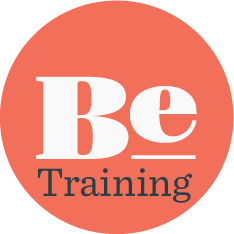New publication in the journal of Harm Reduction Human service settings, especially those not specifically focused on supporting people who use drugs (PWUD), offer a unique opportunity to prevent overdose […]
Tag: Substances: non-opioid
[Training] De-Escalation Techniques for Challenging Situations (2 or 3 hours)

This training is designed to build skills, best practices, and strategies to better support young people or adults in moments of escalation. It is vital for human service providers across fields […]
Read More… from [Training] De-Escalation Techniques for Challenging Situations (2 or 3 hours)
[Training] Sharing Power with Youth: Building Relationships Through Harm Reduction (3 hours)

Recent studies show a dramatic increase in drug overdose deaths among American teenagers as fentanyl contamination becomes more prevalent in drugs used by young people. Young people are very receptive […]
[Training] Linking Reproductive Justice & Harm Reduction: Promoting Clients’ Bodily Autonomy (4 hours)



The fight for reproductive justice shares profound similarities with the movement for harm reduction. These decades-old, grassroots struggles advocate for the protection of individual bodily autonomy from violation, surveillance, and […]
[IN-PERSON TRAINING] Working with People Who Use Stimulants (CEUs)








As drug use changes and evolves in Massachusetts and beyond, we need to be prepared to support clients no matter what substances they use. Learn the basics of what stimulants […]
Read More… from [IN-PERSON TRAINING] Working with People Who Use Stimulants (CEUs)
[IN-PERSON TRAINING] Challenging Narratives: Understanding Alcohol Use from an Equity Lens (CEUs)
This three-hour training will explore the definition and impacts of alcohol use, recognizing the spectrum of use from abstinence to addiction. Specifically, we will examine the social determinants of alcohol […]
[VIRTUAL TRAINING] Challenging Narratives: Understanding Alcohol Use from an Equity Lens (CEUs)
This three-hour training will explore the definition and impacts of alcohol use, recognizing the spectrum of use from abstinence to addiction. Specifically, we will examine the social determinants of alcohol […]
[Training] Supporting People Who Use Drugs: Strategies for Service Providers (3 hours)








Human service providers in a variety of settings often engage with people who use drugs (PWUD) who may be at risk for overdose. Meeting the specific needs of PWUD is […]
[Training] Challenging Narratives: Understanding Alcohol Use from an Equity Lens (3 hours)








Conventional narratives of the “opioid crisis” or “opioid epidemic” have often erased the profound impacts of alcohol use. While American drug overdose deaths topped 100,000 for the first time in […]
Vermont Helplink





VT Helplink is your statewide, public resource for finding substance use treatment and recovery services in Vermont. Helplink services are free and confidential. Our caring, trained Specialists will help you […]
Massachusetts Substance Use Helpline





The Helpline is the only statewide, public resource for finding substance use treatment, recovery, and harm reduction services in Massachusetts. Helpline services are free and confidential. Our caring, trained Specialists […]
Illinois Helpline for Opioids & Other Substances





The IL Helpline is the only statewide, public resource for finding substance use treatment and recovery services in Illinois. The IL Helpline serves people using opioids and other substances, with […]
Read More… from Illinois Helpline for Opioids & Other Substances
Nothing For Us Without Us: Peer-Based Recovery Is The Latest In A Long History Of Consumer-Driven Movements





This blog post describes a growing movement that is revolutionizing how we approach substance use disorder (SUD) treatment and view recovery – changing our language, helping to remove stigma, and […]
[Training] Best Supervisory Practices: Working through Incidents & Crises (3 hours)








This three-hour, non-clinical training is intended to provide supervisors with the best practices and tools for nurturing and supporting staff who work in substance use, harm reduction, homeless services, and […]
Read More… from [Training] Best Supervisory Practices: Working through Incidents & Crises (3 hours)
[Training] Working with People Who Use Stimulants: Best Practices (3 hours)








As drug use evolves in Massachusetts and beyond, we need to be prepared to support clients no matter what substances they use. In this three-hour training, learn the basics of […]
Read More… from [Training] Working with People Who Use Stimulants: Best Practices (3 hours)
[Training] Exploring Pathways of Recovery (3 hours)








When we recognize that recovery looks different for every person, we can better advise our clients. This three-hour training will introduce various forms of recovery, from medication to 12-step programs […]
Read More… from [Training] Exploring Pathways of Recovery (3 hours)
[Training] Addressing Drug-Related Stigma and Bias (3 hours)








Drug-related stigma presents barriers to effectively supporting clients who use drugs. Our biases are learned from a culture that stigmatizes drug use and ostracizes those with substance use disorders. This […]
Read More… from [Training] Addressing Drug-Related Stigma and Bias (3 hours)
RIZE Toolkit: Your Rights in Recovery


Recovery from opioid use disorder (OUD) is a life-long journey and can look different for everyone. Wherever you are in your recovery, this toolkit offers the support and resources people […]